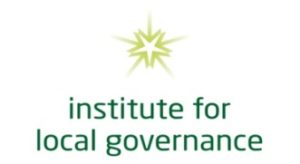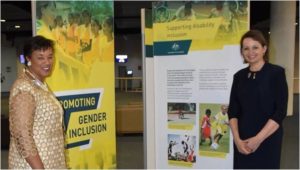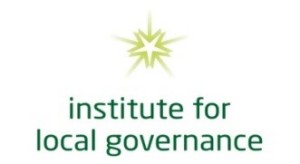 Professor Tony Chapman and Stephanie Rich are to evaluate the National Youth Agency’s My Money Now programme which is funded by the Money Advice Service. The project brings together tried and tested approaches to inform the development of financial literacy and sustained money management skills and builds on the success of an existing intervention (Barclays Money Skills Champions).
Professor Tony Chapman and Stephanie Rich are to evaluate the National Youth Agency’s My Money Now programme which is funded by the Money Advice Service. The project brings together tried and tested approaches to inform the development of financial literacy and sustained money management skills and builds on the success of an existing intervention (Barclays Money Skills Champions).
Its purpose is to strengthen the existing evidence on the immediate advantages of the previous programme for Money Skills Champions, to get a better understanding of how peer education improves the financial capability of 16-21 year olds who are engaged in apprenticeships and which, in turn, has the potential to help influence subsequent decision making which could have longer-term benefit by enhancing the likelihood of improved retention on apprenticeship schemes.
More specifically, the evaluation aims to explore the efficacy of the project through the following research questions:
- To determine if the NYA’s existing approach to ‘peer education’ has distinctive and beneficial impacts upon young people’s approach to learning about discrete financial issues which are replicable for young people from disadvantaged or marginalised backgrounds.
- To find out if the financial learning intervention has a positive impact by improving young people’s knowledge about financial issues and strengthens their locus of control when making immediate financial decisions.
- To explore whether increasing knowledge and skills through peer education about financial issues may impact positively on young people’s ability to navigate key life transitions by weighing up the ‘opportunity costs’ of their decisions in financial and personal development terms.
The project runs for 15 months, beginning in January 2017.
This project has now been completed and it is expected that the final report will be published on the MAS evidence hub website in May 2018 – a link will be provided here when available.

 Professor Fred Robinson is working with Professor Keith Shaw of Northumbria University on a new study looking at structures and processes of governance in North East England. They will be finding out who runs public services in the region and assessing how accountable they are. They will be looking at different models of governance — some elected, others appointed. And they will be asking what works best and how we can make governance better.
Professor Fred Robinson is working with Professor Keith Shaw of Northumbria University on a new study looking at structures and processes of governance in North East England. They will be finding out who runs public services in the region and assessing how accountable they are. They will be looking at different models of governance — some elected, others appointed. And they will be asking what works best and how we can make governance better. run things. Many people distrust elites, politicians and the ‘establishment’. There are widespread feelings of powerlessness and alienation – as the EU Referendum demonstrated. But there is no simple answer to the problems facing us. Electing people to run things like Councils or the Police seems attractive, but turnouts are so low that there’s really only limited democratic legitimacy. Appointing people to run services – the boards of NHS Trusts, or the Governing Bodies of universities, for example – may bring in expertise, but can be seen to be about recruiting the ‘usual suspects’. And referendums — making decisions by asking the people — don’t seem to work all that well either.
run things. Many people distrust elites, politicians and the ‘establishment’. There are widespread feelings of powerlessness and alienation – as the EU Referendum demonstrated. But there is no simple answer to the problems facing us. Electing people to run things like Councils or the Police seems attractive, but turnouts are so low that there’s really only limited democratic legitimacy. Appointing people to run services – the boards of NHS Trusts, or the Governing Bodies of universities, for example – may bring in expertise, but can be seen to be about recruiting the ‘usual suspects’. And referendums — making decisions by asking the people — don’t seem to work all that well either. f the concern was about unelected quangos. They helped influence the debate then – institutions in the region started thinking more about the gender balance (or lack of it) on their boards and the need to have representation from BME communities. Since 2000, some things have changed for the better – but there’s certainly room for a lot more improvement. Many institutions are still dominated by the ‘male, pale and stale’.
f the concern was about unelected quangos. They helped influence the debate then – institutions in the region started thinking more about the gender balance (or lack of it) on their boards and the need to have representation from BME communities. Since 2000, some things have changed for the better – but there’s certainly room for a lot more improvement. Many institutions are still dominated by the ‘male, pale and stale’.
 The Programme Advisory Group assembled at St Chad’s College, Durham University on 28th July 2016 for its second meeting this year. The group includes representatives from IPPR\North, Community Foundation for Tyne & Wear and Northumberland, TSRC, VONNE, Greater Manchester Centre for Voluntary Organisation, Social Enterprise Coalition and Durham and Sheffield Universities.
The Programme Advisory Group assembled at St Chad’s College, Durham University on 28th July 2016 for its second meeting this year. The group includes representatives from IPPR\North, Community Foundation for Tyne & Wear and Northumberland, TSRC, VONNE, Greater Manchester Centre for Voluntary Organisation, Social Enterprise Coalition and Durham and Sheffield Universities. In North East England (funded by the Community Foundation for Tyne & Wear and Northumberland). Link to the survey questionnaire:
In North East England (funded by the Community Foundation for Tyne & Wear and Northumberland). Link to the survey questionnaire: 


 A seminar organised by the Institute for Local Governance, Teesside University Darlington, Vicarage Road, Darlington, Friday 15 July 2016, 9.30 – 1.00
A seminar organised by the Institute for Local Governance, Teesside University Darlington, Vicarage Road, Darlington, Friday 15 July 2016, 9.30 – 1.00  y to those in need of care. We’ve been focusing, through seminars and discussions on the situation of a range of individual carers who give support to those in need, including neighbours and friends; young carers; older people providing care to spouses; people providing informal dementia care, amongst others. It must be recognised that such carers often achieve what they do with help from the many charities and community organisations which deliver support to carers.
y to those in need of care. We’ve been focusing, through seminars and discussions on the situation of a range of individual carers who give support to those in need, including neighbours and friends; young carers; older people providing care to spouses; people providing informal dementia care, amongst others. It must be recognised that such carers often achieve what they do with help from the many charities and community organisations which deliver support to carers.